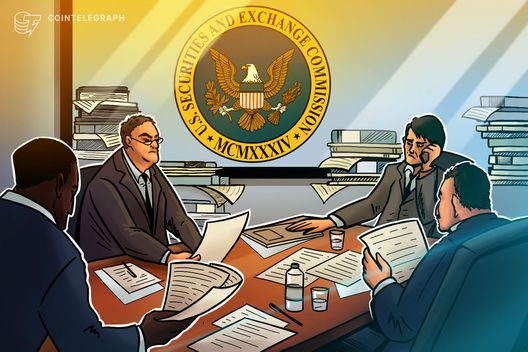The ongoing evolution of cryptocurrency regulations continues to capture the industry’s attention, particularly as the U.S. Securities and Exchange Commission (SEC) makes pivotal decisions regarding digital assets. Recently, the SEC has announced an extension of the deadlines for crypto funds that are tracking two significant players in the market: Solana and XRP. This extension signals that the SEC is taking a closer evaluation of the implications surrounding these assets.
In addition to the deadlines pertaining to Solana and XRP, the SEC is also engaging with proposals that focus on the growing trend of Ether staking. As Ethereum solidifies its position as a leading platform for decentralized applications and smart contracts, this proposal marks a noteworthy step in the regulatory landscape for staking mechanisms.
With these responsive actions, the SEC appears to be keeping a keen eye on the evolving structure of cryptocurrency investments and their compliance with existing financial laws, highlighting the agency’s commitment to ensuring investor protection.
This latest development is particularly significant for investors and fund managers who are navigating the complex and often shifting regulatory environment surrounding cryptocurrencies. By extending deadlines, the SEC is not only providing additional time for compliance but also indicating that thoughtful deliberation is underway regarding the future of these digital assets.
As the dialogue around regulation intensifies, stakeholders in the cryptocurrency space are keenly observing how such changes will ultimately shape the investment landscape and the broader market dynamics. The overarching theme is a move towards clearer guidelines that could either enhance growth opportunities or impose new challenges as the industry strives for legitimacy and stability in a rapidly changing environment.
SEC Extends Deadlines for Crypto Funds Related to Solana, XRP, and Ether Staking
The recent decision by the SEC regarding crypto funds has significant implications for investors and the overall market.
- Extended Deadlines:
- The SEC has pushed back deadlines for crypto funds tracking Solana and XRP.
- This extension provides more time for regulatory review and compliance.
- Impact on Investors:
- Potential for increased investor confidence as regulations become clearer.
- Opportunities for investors to reassess their strategies in light of these developments.
- Proposals Targeting Ether Staking:
- New proposals aim to clarify the regulatory framework for Ether staking.
- May affect how staking is perceived in the investment community.
- Market Reactions:
- Potential volatility in markets as traders react to regulatory news.
- Long-term impact on the adoption of cryptocurrencies based on regulatory clarity.
SEC Extends Deadlines for Crypto Funds: Solana, XRP, and Ether Staking Updates
The recent news from the SEC regarding the extension of deadlines for crypto funds that focus on Solana and XRP is a significant development in the cryptocurrency regulatory landscape. This extension not only impacts the flow of investment into these assets but also aligns with proposals aimed at regulating Ether staking, demonstrating the SEC’s broader strategy to impose clearer guidelines on the crypto market.
Competitive Advantages: By granting more time for compliance, the SEC is providing an opportunity for crypto funds to adapt to regulatory requirements without rushing into potentially disadvantageous decisions. This thoughtful approach could enhance investor confidence and stability in funds tracking Solana and XRP, which face unique challenges due to regulatory scrutiny. Furthermore, with Ether staking under the microscope, this could create an environment conducive to innovation and longer-term investments across the board.
Disadvantages: On the flip side, this delay might create uncertainty for some investors seeking immediate clarity on the regulatory status of these cryptocurrencies. Such indecision could deter institutional investment, which is crucial for market maturation. Additionally, the prolonged review period may lead to competitive disadvantages for crypto funds that have already established stringent practices compared to those still adapting to the new expectations.
Ultimately, this news could benefit both active investors in Solana and XRP, who might see this as a chance to strategize, as well as developers and businesses looking to refine their offerings in a more regulated environment. However, it poses potential challenges for those who rely on swift regulatory clarity to make informed trading and investment decisions, particularly in the volatile crypto market.
















